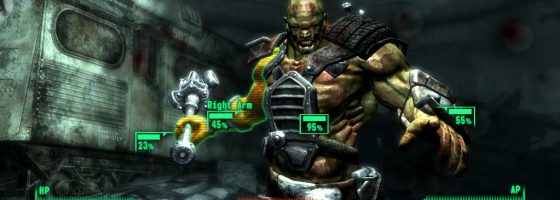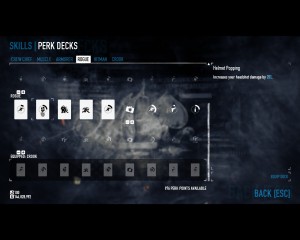I’ve had an idea for a new post series; we’re going to be taking a look at the essential elements of specific genres. There’s a difference between designing a game that has those elements vs. an actual game of the genre. For our first discussion, we’re going to dive into the RPG genre and find out what makes it tick.
High Level:
For these talks, we’re going to start with a high level look at the genre, before drilling down into the core systems.
RPGs are built on abstracted progression — where the in-game character acts as the power curve throughout the game. As the game goes on, your character or party grows in power and allows them to take on bigger threats.
The player’s own skill-level can be a factor, but at the end of the day, the character progression/abstraction is what matters.
As we’ve talked about before, abstracted progression is a very effective hook for keeping the player engaged. This is the main reason why so many action titles have adopted progression curves; such as Call of Duty, Borderlands, and so many more; conversely, this is why the genre has become muddled in recent years.
Just because your game has numbers in it doesn’t make it an RPG, and where we can start digging deep.
Customization/Personalization:
The first major line in the sand for what is or isn’t an RPG comes down to player customization and personalization. Personalization, or allowing players to change the look of a character is a given in just about any game. Customization is when things get tricky.
Many games that make use of RPG systems don’t go into enough detail to be considered an RPG. Having a linear skill tree that every player goes up is not an example of customization. A common element we see in games with RPG systems is the same progression tree for every player. Some games may have two or more, but it’s very easy to find the min/max options based on the present design. The best RPGs make it hard to find the best options; simply because there are so many.
Another major point is having customization options that barely impact how you play the game. Options like “Increased reload speed” or “Increased run speed” are not examples of changing how you play the game. The options have to be meaningful to the game and impact how someone goes through it.
Continuing with that thought, there has to be more to your game than just linear solutions. Without freedom to define the story and/or character growth, your game is not an RPG.
Choices:
Our final point has to do with the actual choices in game. When we talk about choice in RPGs, we can talk about story and/or gameplay.
To wrap up discussing gameplay, the best RPGs allow players of different builds and growth to play through them. A big problem with RPG-Like games is giving the player choices, but they all revolve around the same thing; most often combat.
Prey provided the player with different options that radically changed their tactics and paths through the game space. If there is only one path of progression and power in your game, then it is not an RPG.
The same can also be said when it comes to story. Giving the player freedom to define the story is a major part of RPG design, and goes back to the days of Pen and Paper games. It’s almost a standard feature these days for games that allow the player to completely customize their character to also have an impact on the story.
One important point: When we’re talking about impacting the story, it can be as small as choosing how to end quests to having final say on the ending. For more about the distinction, you can read my piece on hard and soft choices in games.
As an interesting tangent, the difference in fully customizing story or gameplay can also be a dividing point for JRPG and CRPG design. Many JRPG titles give the player full reign in customizing characters, but keeping the story linear. CRPG design as of late has been about having control over both aspects. We could segue way into talking about the best way of presenting these choices, but that would be off topic.
+1 to Design:
The difference between RPG systems and RPG design comes down to the options presented to the player.
If everyone can just build the same kind of character due to min/maxing or limited choices, then the game cannot be considered an RPG.
RPG-based systems have become very popular and there’s nothing wrong with adding them to a game, but just because your game has legendary shotguns and a skill tree does not make it an RPG.


